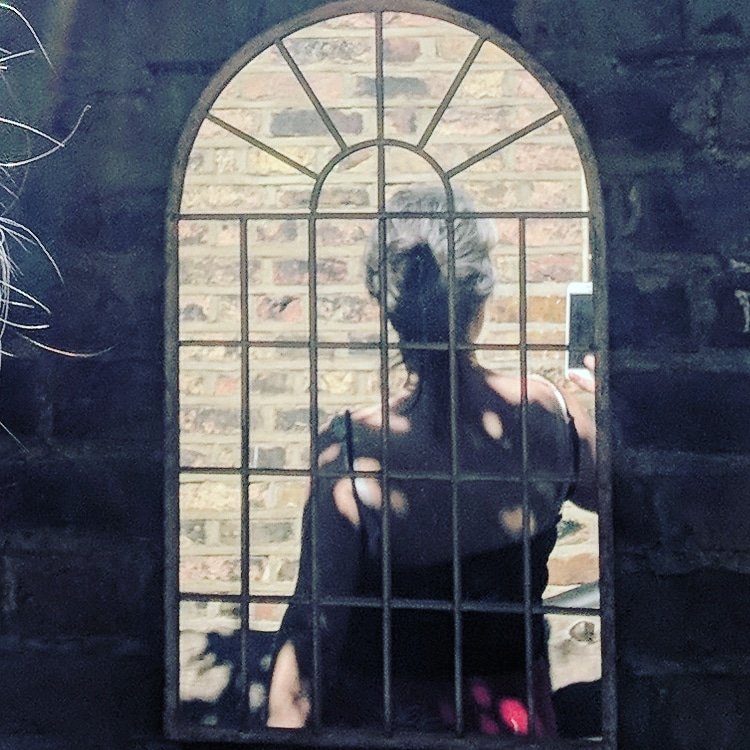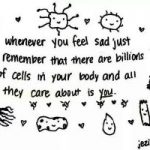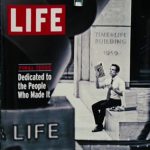Privacy is shorthand for breathing room to engage in the process of … self-development. – Julie E. Cohen
Writer Muriel Spark kept her own archives. Every bus ticket, theatre ticket, diary, shopping list, cheque stub, etc., she kept and stored in boxes for years until she sold the lot to the National Library of Scotland.
When I first read about Spark’s archive, I loved her chutzpah. But, in Appointment in Arezzo, Alan Taylor explains that the archive was far from her having one eye on posterity. Spark kept it so that she had irrefutable proof of who she was and the experiences which had shaped her. She could use that archive to know the truth about herself and her past especially when people she had known and loved wrote about her unfavourably.
Nowadays we all have similar archive, online. It boggles my mind how Google has recorded every journey I have ever made when using its maps. Elsewhere I am in databases in the workplace, pension plans, the doctor’s, the dentist, the TFL Oyster card system, and so on. My offline archive is just a mountain of old diaries.
Personal information, like the fields found in a database, wasn’t really collected until after WWII, and even then it didn’t become a commodity until much later on when businesses began to collect it to sell us things. Before that, there wasn’t much anyone didn’t know about you in your community say like your village. I know where I grew up everyone knew everything about me. But there is a massive difference between the facts that are known about me by neighbours and the journals I have kept.
It is the same today. I mean I don’t care if you know where I go, or what I buy, or how old I am. I don’t publicise these things and definitely not online, but even so, if you asked me I would probably tell you. However, if you were to come round my house and read my diaries I would be mortified. They are private.
Privacy is a social construct. Historically people lived closely together so there was no privacy. It was only in the US in 1980, it came to mean the right to be let alone as defined in Samuel D Warren and Louis Brandeis’ article titled The Right to Privacy.
UK and EU law is more piecemeal, we have privacy of information and the right to respect for our private and family life but nothing as clear as the US torts.
There might be lots of personal information about us in databases or in other people’s heads where we fit demographically, but that is not the same as our hopes, our dreams, or our irritating habits, which is why when someone shares that sort of information about us or indeed reads it in a diary, without our permission, especially if it is something we wouldn’t want the whole village or indeed Internet to know, it can feel like a horrible betrayal and a violation of our privacy.
That said, our everyday lives are a constant trade off between privacy and intimacy, between sociability and creating relationships. Privacy is not an absolute state and it can be doubly difficult to figure out where we are, when we are the individuals who have offered up our private space in the first place, which is what we do when we put up pictures of our houses, or our lunch, or ourselves, online.
Knowing yourself in the face of others
Knowing what to keep private can be a hard call and can change from day to day. With people online, whom we chat to, we tend to fall into an immediate trust and share more readily because trusting and sharing is what builds intimacy, and as we have little to go on with a virtual someone else, we may violate our own privacy to drum up a sense of intimacy and trust, and if the other person turns out to be not what they said they were then we may feel a bit foolish, that’s if we are lucky!
We all wear masks, and the time comes when we cannot remove them without removing some of our own skin. – André Berthiaume
But it is not our fault. Laurence Scott says in The Four Dimensional Human, that the modern message is that we are fundamentally isolated from each other and that when we get online we have the abstract promise of going home, it has become part of the rhythms of almost every waking hour to look for a sign or word elsewhere.
In other words, connection gives our lives meaning and we will readily trade some privacy for the promise of not feeling socially excluded. And, if Scott is to be believed, then technology has trained him to be permanently online hoping for some connection.
The hoped for self
And, if that is true, it is no wonder that Scott remains frustrated that people do not share the things which he feels really need to be shared and instead curate their lives carefully to makes themselves look like they are having a life well lived. In his words: We gentrify our web presence and describes social media as a bit of a stage performance.
But how else are we to behave? Being honest and vulnerable online or off takes courage, so if the person or indeed the whole gang of people with whom you are sharing don’t understand or empathise, and in a worst case scenario, let you know, you can feel crushed and ganged up against. It is only with a strong sense of self can you recover.
Privacy provides you with a space in which to discover that sense of self but if you are never offline then how can you cultivate one? You cannot do it online if you are wanting randomers to satisfy your painful yearnings for connection.
I read something today that the optimum number of friends of Facebook is 300. Anymore and you look like you have no friends. Elsewhere, like Twitter or LinkedIn, lots of followers makes you look fabulous. Connectedness is a commodity and we work hard to keep our numbers up. We cannot win. Emotional Intelligence author Daniel Goleman has said that we are under siege in this pervasive digital culture and there are a lot of rules made up by social media experts for us to manage and succeed online. We need to be authentic, unless of course we are not very nice then we have to hide that and pretend to be nice, authentic, and the same as everyone else.
We like rules to make sense of things and we have long been told how we should live our lives by the media, with social media there are just more ways to be told how to conform.
In Cave in the snow author Vicki MacKenzie, describes how Buddhist monk Tenzin Palmo moved into a cave up the Himalayas so that she could meditate in peace:
She could begin to unravel the secrets of the inner world – the world that was said to contain the vastness and wonder of the entire universe.
More and more I am beginning to think this aptly describes privacy. We could all do with a bit of solitude to build our emotional and digital resilience. The Internet is fabulous as it compresses time and space, great for maintaining friendships, keeping in touch with loved ones, running businesses, and so on. But if all we do is constantly look online to find meaning,connection and validation then we will never give ourselves that time and space to give those things to ourselves.
We don’t have to go mad like Tenzin Palmo and sit in a cave for 12 years or indeed emulate Christopher Knight the man who lived alone in the woods for 27 years and experienced deep transcendental moments in nature. We don’t even need to delete our social media accounts as Jared Lenier warns us we must. But, we need to protect our inner world, our privacy, so that if we never unravel the secrets of the entire universe, or transcend ourselves watching the fog lift at sunrise, we know enough to love and respect our own dear selves, so that we are able to connect with love and respect to our fellow human beings, by transcending the painful yearning we sometimes get when our needs are not being met.
The man in the woods’s observation of the mobile phone is fascinating: Why, he wonders, would a person take pleasure in using a telephone as a telegraph machine? “We’re going backwards,” he says.
Privacy is the space in which we come on home to ourselves. There’s no need to camp out online in the hope of making a home in a stranger’s photo album.






